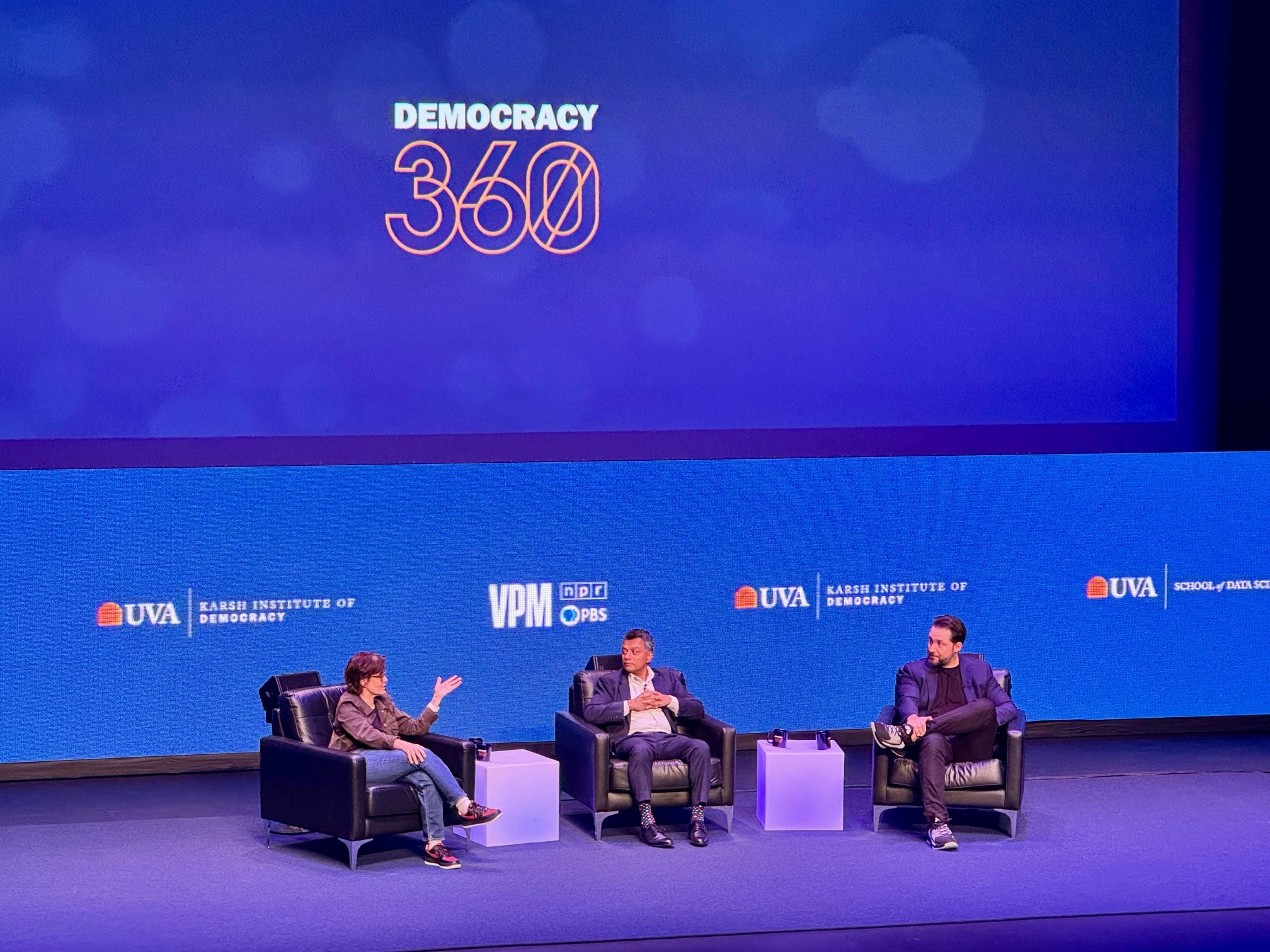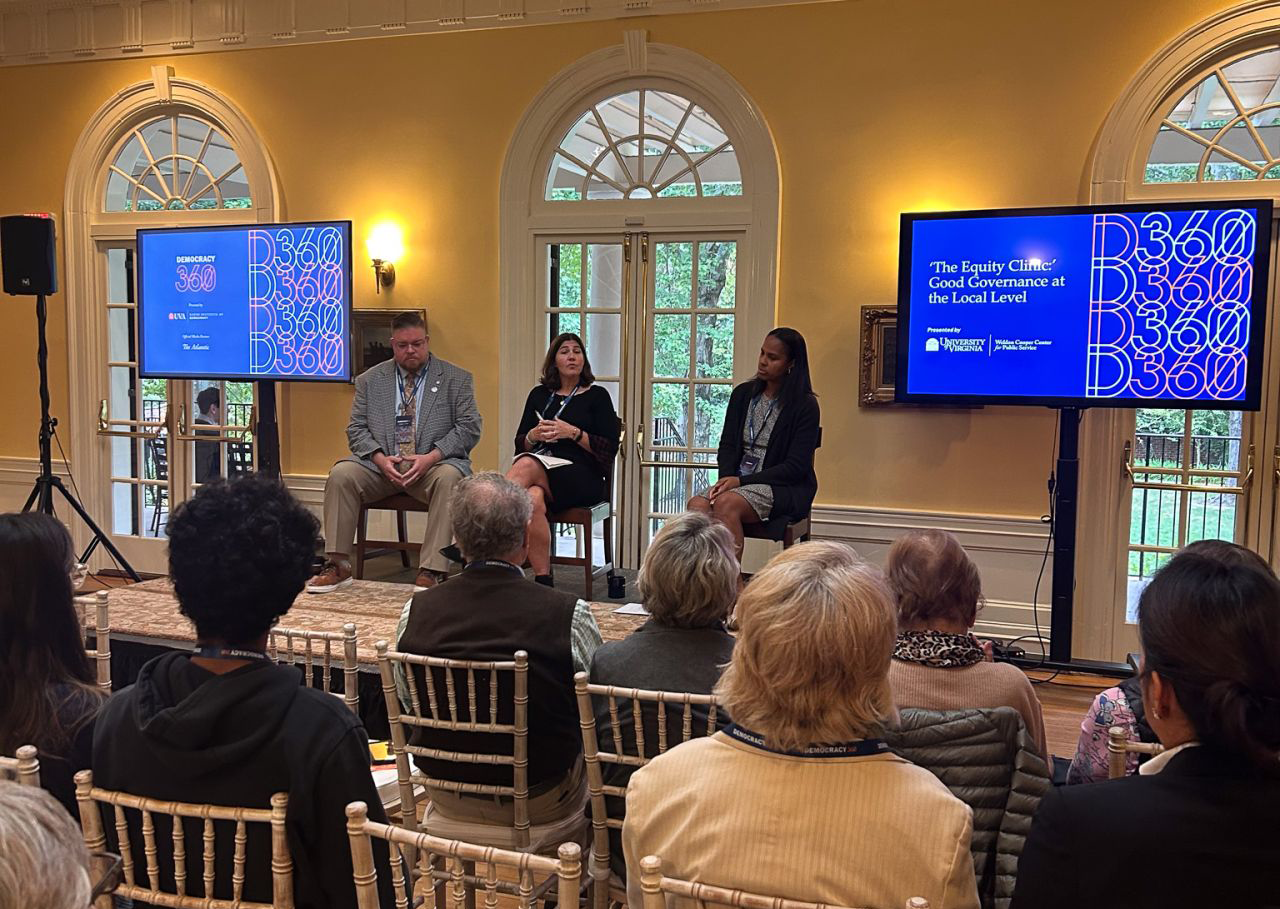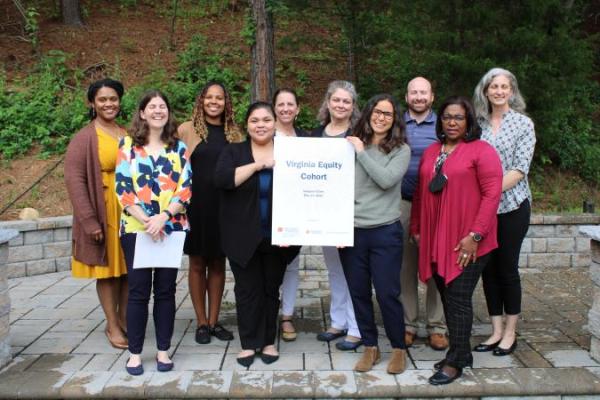
Phil Bourne and Siri Russell Participate in Democracy360 at Karsh Institute
The University of Virginia’s Karsh Institute of Democracy hosted its inaugural Democracy 360 conference, a three-day event featuring more than 40 talks and panels on the future of democracy.
Programming included speakers and presenters from across the University and from every school and institute, including the School of Data Science, which was an official sponsor of the event.
Dean Phil Bourne opened events held at the Paramount Theater by introducing the featured guests for a panel that examined the effects of big tech on democracy: Alexis Ohanian, founder of Seven Seven Six and co-founder of Reddit; Deb Roy, director of the MIT Center for Constructive Communication; and Kara Swisher, host of the podcast “On with Kara Swisher.”

The hour-long conversation covered topics like misinformation, the evolution of social networking to social media, the impact of public social commentary on traditional news outlets, the rising interest in data privacy, and how future generations may respond to these developments.
Another D360 event that featured the School of Data Science was a session that explored local governance and specifically the work of the Local Government Equity Clinic, now in its third year, which works with practitioners on how to use data to promote diversity, equity, and inclusion in critical areas like housing, transportation, and land use. Panelists included Siri Russell, associate dean of equity, inclusion, and belonging at the School of Data Science, as well as Molly Harlow and Charles Hartgrove from the Weldon Cooper Center for Public Service.

“Sometimes it can be hard to transform mission statements into action,” said Russell. “Our purpose is to better understand what it means to ‘apply an equity lens’ in practice and to increase confidence in articulating that process to other people.”
“Data enters this conversation as a means of better understanding our current state, informing our actions, and measuring our progress,” she added.
The Clinic brings together roughly 20 participants per year to discuss common challenges, review nuanced terms and concepts, and experiment with turning ideas into attainable goals. The program leverages the expertise and resources of both the Weldon Cooper Center and School of Data Science in alignment with shared goals around data for the public good.
Russell brings to this effort expertise from her work with Albemarle County, where she led the creation and implementation of its DEI program and initiatives. For the Cooper Center, the partnership is driven by how to leverage data in the space of community to improve access, policy, and services that governments provide.
Russell explained to the audience how the Clinic challenges participants with identifying an attainable goal within the context of their own position and organization. Participants learn change management, agree on a common foundation of language and terminology, hone skills in translational storytelling, and learn how to put into practice data-driven solutions that address equity and inclusion.
“I am heartened by the fact that the Equity Clinic is making a difference in people’s lives,” said Molly Harlow, assistant director for leadership development at the Weldon Cooper Center’s Virginia Institute of Government. “Looking toward the future, I hope to build out the program to help leaders at every level. This will create better, healthier, more resilient local communities.”

